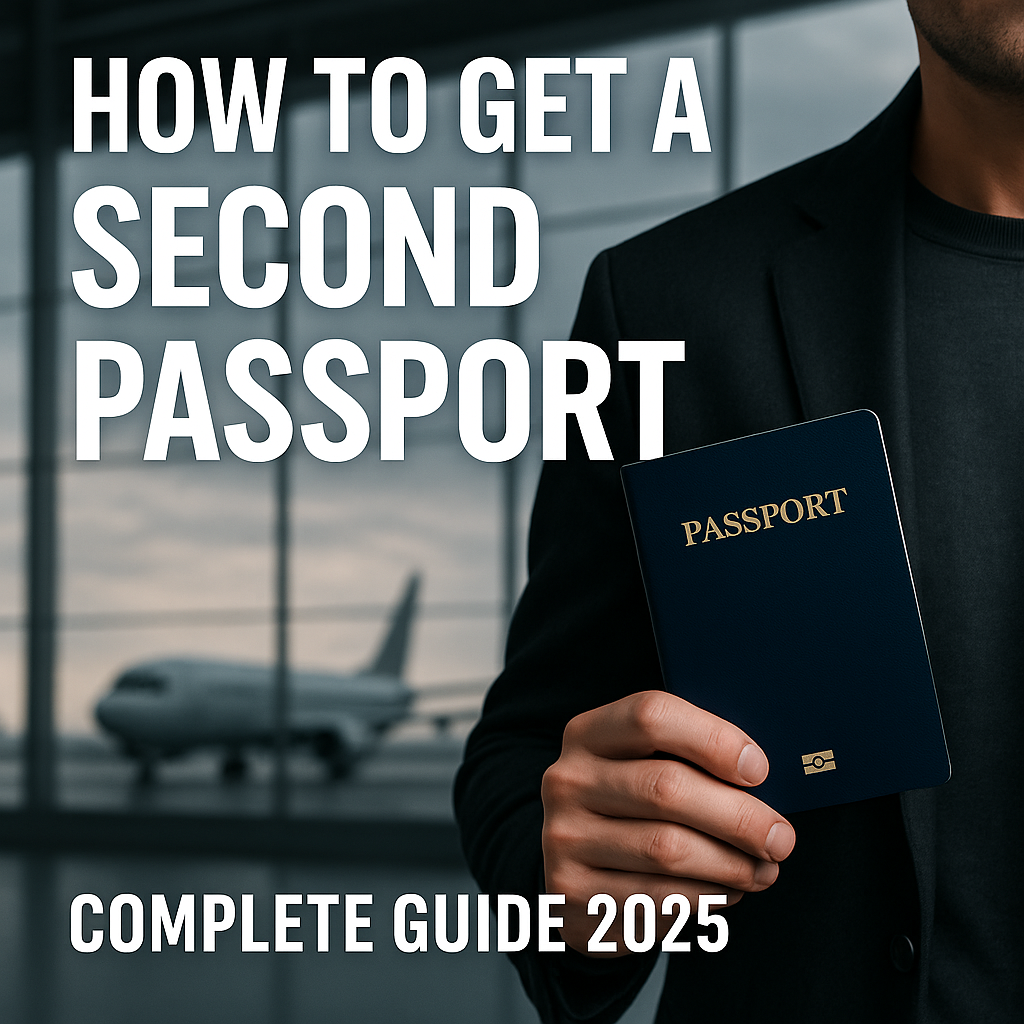
The world is changing rapidly. Political tensions, economic instability, and restrictions on individual freedom have made obtaining a second passport less a luxury and more a practical necessity. In 2025, having dual citizenship isn’t just for the ultra-rich; it’s becoming a smart move for entrepreneurs, digital nomads, investors, and anyone looking to safeguard their personal freedom, financial security, and global mobility.
This guide will walk you through everything you need to know about obtaining a second passport legally, securely, and pragmatically.
Why You Need a Second Passport in 2025
A second passport provides tangible advantages in today’s uncertain environment:
- Increased mobility: Access more countries visa-free or with simpler entry requirements.
- Economic flexibility: Optimize your taxes legally and diversify financial assets internationally.
- Enhanced security: A backup citizenship provides peace of mind amid political or economic crises in your home country.
- Improved quality of life: Choose jurisdictions with better healthcare, education, and living standards.
The Main Routes to Obtain a Second Passport
There are four primary paths to second citizenship:
1. Citizenship by Investment (CBI)
This is the fastest and most straightforward option. Countries offer citizenship directly in exchange for significant investment. Popular CBI programs include:
- Dominica and St. Kitts & Nevis: Affordable (from around $100,000–$150,000), visa-free travel to over 130 countries, and straightforward procedures.
- Turkey and Montenegro: Require real estate investments (typically $250,000–$450,000), granting EU-like travel rights and lifestyle advantages.
2. Citizenship by Descent (Ancestry)
Many countries offer citizenship to those who can prove ancestral ties. Notable countries with robust ancestry programs include:
- Ireland: Flexible rules for grandparents or even great-grandparents.
- Italy: Generous “jure sanguinis” citizenship rights based on lineage.
3. Citizenship by Naturalization
This method involves residing legally in a country for a specific period and then applying for citizenship:
- Portugal: The popular “Golden Visa” residency (recently modified but still viable) leads to citizenship after five years.
- Panama, Uruguay, and Paraguay: These offer simplified residency paths with relatively straightforward citizenship applications after 3–5 years.
4. Citizenship by Exceptional Merit or Special Circumstances
Countries occasionally grant citizenship based on extraordinary achievements in sports, arts, or business. However, this option is rare and highly selective.
Recommended Second Passport Programs in 2025
These are currently among the most practical and beneficial second passport programs:
Dominica
- Investment: From $100,000 donation or $200,000 real estate.
- Benefit: Excellent travel freedom, low cost, swift processing (3–6 months).
St. Kitts & Nevis
- Investment: From $150,000 donation or $200,000+ real estate.
- Benefit: High visa-free travel, no income tax, solid international reputation.
Turkey
- Investment: Real estate purchase ($400,000+) or business investment.
- Benefit: Strategic geographical position, access to EU markets, visa-free to 110+ countries.
Portugal
- Investment: Real estate, funds, or business (€350,000+ typically).
- Benefit: EU citizenship pathway, high-quality living standards, strong passport.
Paraguay
- Investment: Bank deposit or real estate investment.
- Benefit: Low taxes, easy residency, citizenship achievable after 3–4 years.
Costs and Typical Procedure (Step-by-Step)
The general steps involved are:
- Choosing the program: Select based on your budget, desired timeline, and lifestyle preferences.
- Investment execution: Make your donation or investment as specified by the chosen country.
- Documentation and due diligence: Provide identification, financial records, background checks, and proof of investment.
- Approval: Typically takes between 3–12 months, depending on the program.
- Passport issuance: Once approved, receive your passport and related documents.
Expect total costs (including legal fees, government charges, and administrative fees) ranging from $100,000 to $500,000, depending on the program and country selected.
Risks, Myths, and How to Avoid Pitfalls
Many misconceptions surround second passports. Clarifying these ensures you navigate the process safely:
- Myth: “It’s always expensive.”
Reality: Costs vary significantly. Some programs are affordable and accessible. - Myth: “It’s borderline illegal or shady.”
Reality: Legitimate programs exist in stable jurisdictions and are fully legal and internationally respected. - Risk: “Using unofficial agents.”
Always engage reputable agencies and licensed professionals with verifiable references.
Conclusion: A Passport Is More than Just Travel
A second passport represents a practical layer of personal sovereignty in an increasingly unpredictable world. It’s about ensuring you’re never at the mercy of a single government or economy. Whether motivated by freedom, security, or strategic financial planning, securing additional citizenship in 2025 could be one of your most pragmatic and valuable decisions.
Investing in a second passport today isn’t merely buying travel privileges; it’s purchasing genuine freedom, security, and control over your future.